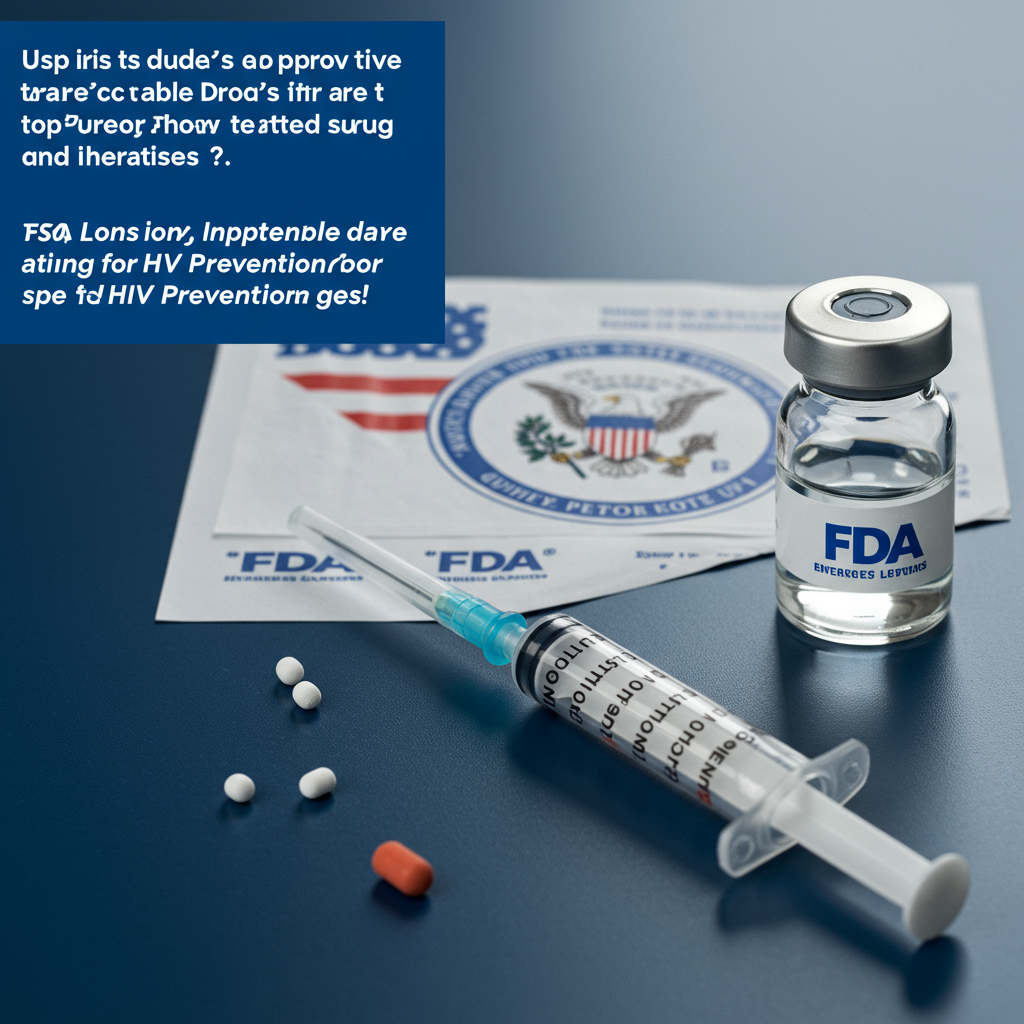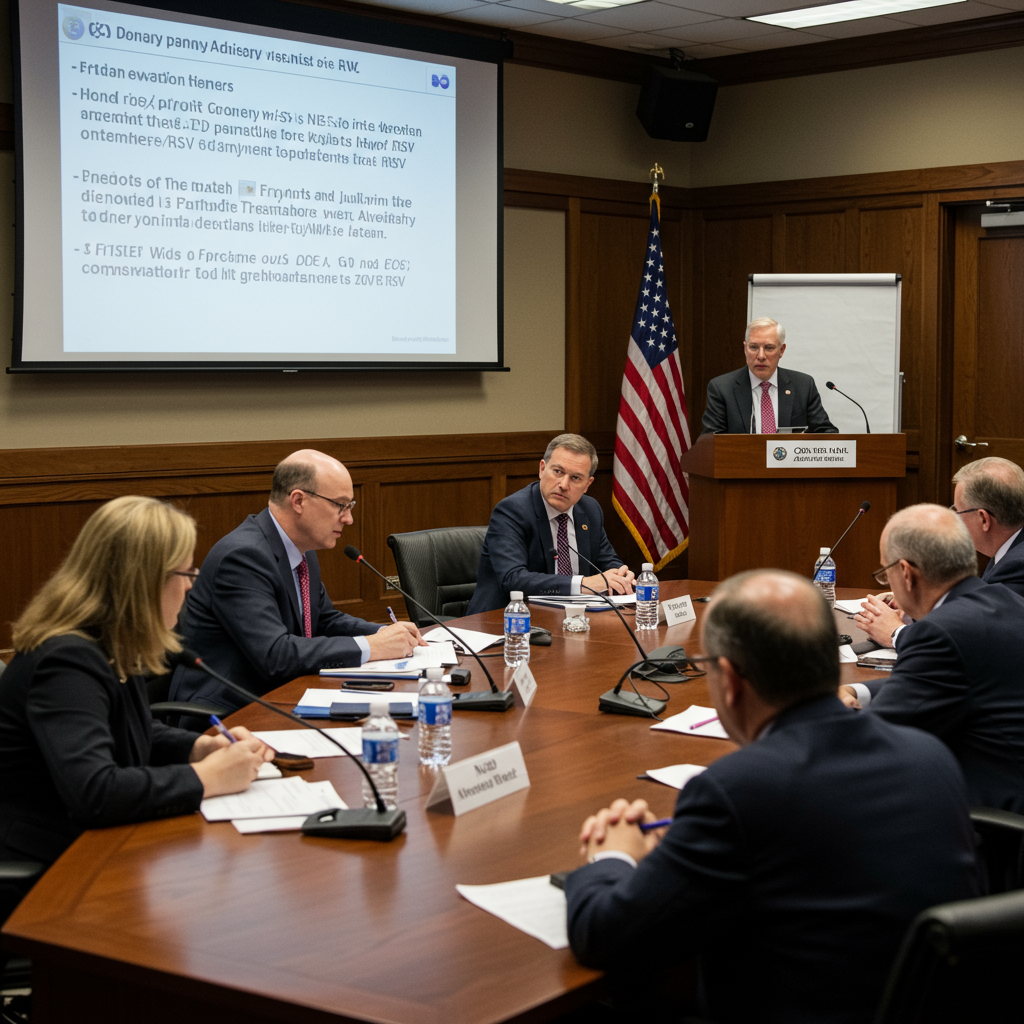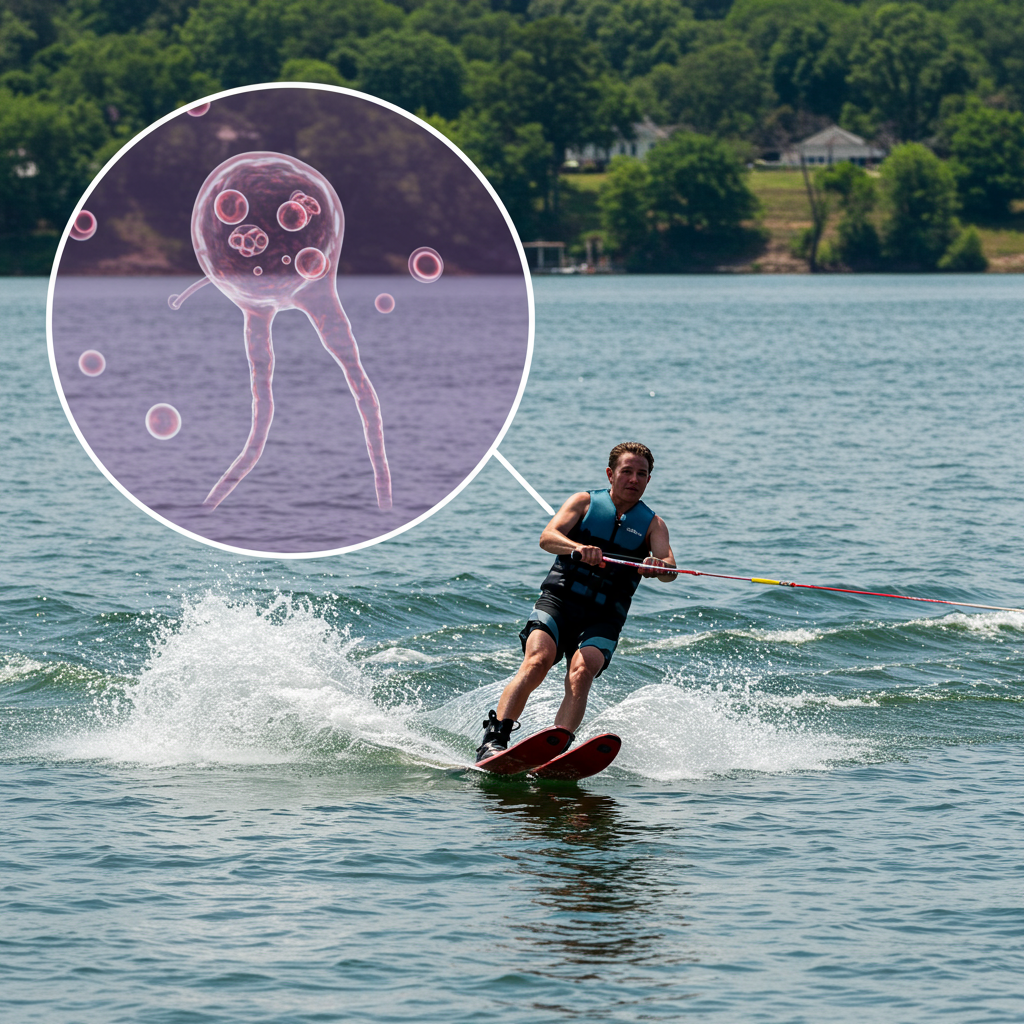A significant advancement in the fight against the HIV epidemic has arrived, as the U.S. Food and Drug Administration (FDA) has approved a pioneering twice-yearly injection designed to prevent HIV infection. The drug, known as lenacapavir (brand name Yeztugo), offers a potentially transformative alternative to existing daily oral prevention methods.
Hailed by many as a “game-changing” breakthrough, this long-acting injectable pre-exposure prophylaxis (PrEP) could dramatically improve adherence and expand access to effective prevention for many at risk of acquiring HIV. Lenacapavir was even recognized as Science magazine’s “Breakthrough of the Year” in 2024 and is already approved for treating individuals living with HIV.
How the New HIV Prevention Shot Works
Unlike previous PrEP medications that target enzymes the virus uses to replicate its genetic material, lenacapavir works differently. It acts as an HIV-1 capsid inhibitor, disrupting the virus’s outer shell (capsid protein) and preventing it from effectively multiplying within the body. This unique mechanism contributes to its long-lasting effect.
Clinical Trials Show Near-Perfect Efficacy
The FDA’s approval is based on compelling data from two large Phase 3 clinical trials, known as PURPOSE 1 and PURPOSE 2. These trials involved over 4,300 participants globally:
PURPOSE 1: This study tracked over 5,000 cisgender women in high-incidence regions like South Africa and Uganda. Strikingly, not a single woman who received the twice-yearly lenacapavir injection contracted HIV during the trial. This demonstrated a 100% reduction in infections in this population and showed superiority over daily oral PrEP (Truvada) in preventing HIV.
PURPOSE 2: This trial included more than 3,200 participants, including cisgender men, transgender women and men, and gender non-binary individuals. Only two infections occurred among those receiving lenacapavir, resulting in 96% efficacy. This trial also showed superiority compared to daily oral Truvada.
Across both trials, efficacy was consistently reported at ≥99.9% among those on lenacapavir. Experts involved in the trials described these efficacy rates as “ridiculously high” and “unheard of,” highlighting the drug’s incredible potential as a preventive tool. The drug was generally well-tolerated with no significant new safety concerns.
Overcoming Adherence Challenges
Existing daily oral PrEP medications, while highly effective (up to 99%) in controlled settings, face a major hurdle: adherence. Real-world effectiveness can be significantly lower for some populations, partly because people struggle to take a pill every single day consistently. This issue is often referred to as the “Achilles heel” of daily pill regimens. A twice-yearly injection could bypass these adherence barriers, making prevention more reliable and potentially overcoming stigma associated with taking daily medication in certain communities.
The Critical Challenge: Cost and Global Access
Despite its remarkable potential, the widespread impact of lenacapavir faces a significant obstacle: cost. Manufactured by Gilead Sciences, the drug’s annual list price in the U.S. is approximately $28,218 before insurance. This price point is comparable to Gilead’s existing daily oral PrEP options (around $24,000 annually) and another injectable PrEP option (GSK’s Apretude, about $4,000 per dose, taken bimonthly).
However, this high U.S. price stands in stark contrast to estimated manufacturing costs and the cost of oral PrEP in many low-income countries. Research suggests lenacapavir could potentially be manufactured for as little as $25 to $40 per person per year, even including a profit margin, under large-scale production. Oral PrEP in many high-burden countries currently costs around $40 per person per year.
Global health leaders and advocates are voicing strong criticism regarding the price. Charging over 1,000 times the potential production cost for a medicine with “pandemic-ending” potential is seen as “abhorrent.” UNAids Executive Director Winnie Byanyima emphasized that the drug can only be game-changing if it is “available and affordable for all who need it.” Critics warn that if the price remains unaffordable, especially in countries most affected by HIV, it will drastically limit access and fail to deliver on its potential to “turn off the tap of new infections.”
Adding to the access challenge, the approval comes during a period of significant cuts to global health programs, including those historically vital for purchasing and distributing HIV prevention tools in low-income countries. This reduction in funding makes it even harder for governments abroad to prioritize expensive new prevention methods when budgets are already strained.
Gilead states it is working to ensure access, including negotiating with insurers in the U.S. and implementing co-pay assistance programs. Globally, the company has entered royalty-free licensing agreements with generic manufacturers to allow lower-cost production for 120 high-incidence countries. Gilead also plans to provide a limited number of doses (estimated at 2 million) at no profit until generic supplies are ready. However, critics argue these efforts are insufficient given the scale of the global epidemic and note that some high-incidence, higher-income countries (like Brazil and Argentina) are not included in the initial generic licensing deals.
Regulatory reviews are ongoing in other key regions, including Europe, which is often a pathway for access in many lower-income nations. While the FDA approval is a critical step, the true impact of this groundbreaking twice-yearly shot on ending the HIV pandemic will ultimately depend on overcoming the significant barriers of cost and ensuring equitable global access.




